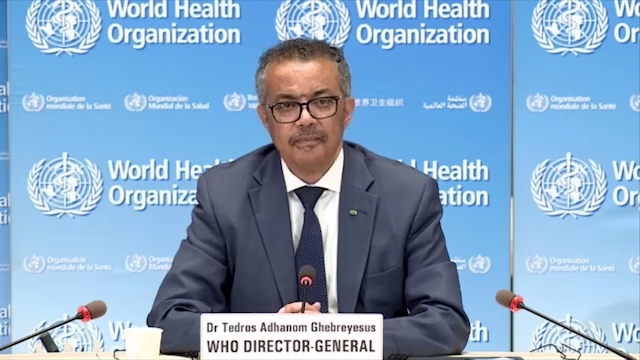Source: Indian Express

In a statement, The Lancet said that “important scientific questions” were raised about data in the paper authored by cardiologist Mandeep Mehra, Desai and Zurich cardiologist Frank Ruschitzka. It said an independent audit has been commissioned.
THE WORLD Health Organisation (WHO) has decided to resume the hydroxychloroquine (HCQ) part of its Solidarity Trial, a global effort to find a treatment for Covid-19, after The Lancet issued an “expression of concern” over a study it had published that had questioned the effectiveness of HCQ.
The WHO had suspended the HCQ segment of its trial based on this study published on May 22.
This study, ostensibly, used data from hospitals obtained by Chicago-based company Surgisphere founded by Dr Sapan Desai who is one of the co-authors.
The study said it had failed to find any benefit of HCQ or CQ (chloroquine, which too is anti-malarial) in Covid treatment.
And that these were associated with “decreased in-hospital survival and an increased frequency of ventricular arrhythmias” when used for Covid treatment.
After The Lancet red-flagged that study, on Wednesday, WHO quoted its director general Tedros Adhanom Ghebreyesus in a tweet:
“On the basis of the available mortality data, the members of the committee recommended that there are no reasons to modify the trial protocol. The Executive Group will communicate with the principal investigators in the trial about resuming the hydroxychloroquine arm of the trial.”
WHO D-G Tedros Adhanom Ghebreyesus
When contacted, Soumya Swaminathan, chief scientist at WHO, told The Indian Express: “Our data safety monitoring board reviewed the mortality data in Solidarity… They did not have concerns related to mortality between HCQ and standard of care. Hence, we have decided to resume the trial.”
India questioned the integrity of the study and remained steadfast in its directions to use HCQ for prevention of Covid, and a combination of the drug and antibiotic azithromycin for treatment.
In fact, a day after WHO had suspended the HCQ segment, India had reiterated its faith in the continued prophylactic use of HCQ for Covid saying there was enough experience and sufficient data from observational and case control studies to warrant its use.
In a statement, The Lancet said that “important scientific questions” were raised about data in the paper authored by cardiologist Mandeep Mehra, Desai and Zurich cardiologist Frank Ruschitzka. It said an independent audit has been commissioned.
Questions were raised about the integrity of data — the registry claims to have data from several hundred hospitals worldwide — and its security and privacy aspects.
For instance, there were questions about the database showing more cases in Australia than were officially there at the time of the study. Surgisphere responded by reassigning the hospital to Asia.
In its response to criticism, the company said it had stated that the “results of our analyses should not be over-interpreted to those that have yet to develop such disease or those that have not been hospitalized.”
Mehra is with Brigham and Women’s Hospital Center for Advanced Heart Disease in Boston. In an email response to The Indian Express, he said: “I have routinely underscored the importance and value of randomized, clinical trials and articulated that such trials will be necessary before any conclusions can be reached. Until findings from such studies are available, given the urgency of the situation, using the available dataset was an intermediary step. I eagerly await word from the independent audits, the results of which will inform any further action.”
The Lancet is not the only journal which is having second thoughts about the quality of data supplied by Surgisphere. The New England Journal of Medicine published a similar expression of concern about a study it published on the effect of some cardiovascular drugs on Covid-19. Mehra and Desai were part of the team behind this study as well.

